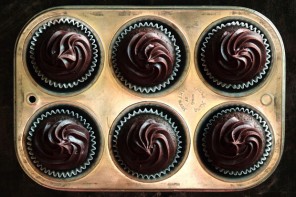Written by: Giulia Simolo
With all the appliances you use on a daily basis, it amounts to a huge sum of energy that goes into your home activities. But with the start of a fresh new year, now’s a great time to begin saving more energy. Because if you don’t, you’re not only making the environment less healthy but your financial matters, too!
We need to stop wasting one of our most valuable resources: power. The world runs on power. Just imagine a day without your computer or lights? Chances are we wouldn’t survive very long! Because we’re so dependent on energy, we need to ensure that we don’t waste it.
See the light
According to the website Homemakers online, the most electricity usage in SA households goes to geysers (24%), space heating and cooling (18%), lighting (17%), consumer electronics on standby mode (15%). Standby mode is not a good idea because although you might think that you’re saving power, electronics that are in standby mode still draw electricity. If you have a few devices on standby, this can amount to a large draw of power.
Check energy efficiency
Checking labels is not just reserved for food and clothing. When you purchase new electronic devices, it’s a good idea to check how energy efficient they are. How can you tell? Efficiency is rated from ‘A’ to ‘G’ on the item, with ‘A’ being very energy efficient and ‘G’ not being efficient (and therefore best thrown out of your trolley!)
Light bulb moment
You might think that saving electricity means decreasing use of energy zappers, which you figure is impossible if you are always plugged in to your home’s energy source. But it’s not. Saving energy is more about smart use than no use at all. There are simple things you can do to maximise the power you do use and preventing waste. This can go a long way to making your home more energy efficient.
- When cooking, try to use a kettle to boil water instead of using a pot on the stove as kettles use less energy.
- Match the size of your pan with the stove plate so energy is not going to go to waste.
- Microwaves are much more energy efficient than ovens. According to Homemakers, one oven uses the same amount of energy as 18 microwaves! That’s a huge amount!
- Cut food into smaller sizes before cooking so that your cooking time will be lowered.
- Don’t use electronic appliances unnecessarily. If you’re going to use an appliance such as your washing machine or dishwasher, make sure that they’re fully loaded before use to save heat and water.
- Replace your light bulbs with compact-fluorescent lamps (CFLs). They might be a bit more expensive than the ordinary bulbs, but they’re worth it because they last up to eight times longer, thus saving you both money and electricity.
- Use lampshades instead of lights as much as you can, and never leave lights on if you’re not in the same room.
Wise geyser
Seeing as though your geyser is where most of your energy goes, it’s a good idea to focus on how you can save power and lower your carbon footprint by using your geyser in a wiser way.
Wrap it up. Buy a geyser blanket to wrap around your geyser so that it insulates heat instead of letting it go to waste.
Insulate your pipes. It’s not just your geyser that can waste energy, but pipes that link to the geyser, too. It’s therefore worth your while to insulate your geyser pipes.
Time it. Finally, install a geyser timer so you can ensure you don’t forget to switch off your geyser when it’s not in use. This is also a great tip to prevent times when you forget to put you geyser back on – it always seems to happen when you’re in need of a hot soothing shower!
The liveeco team










